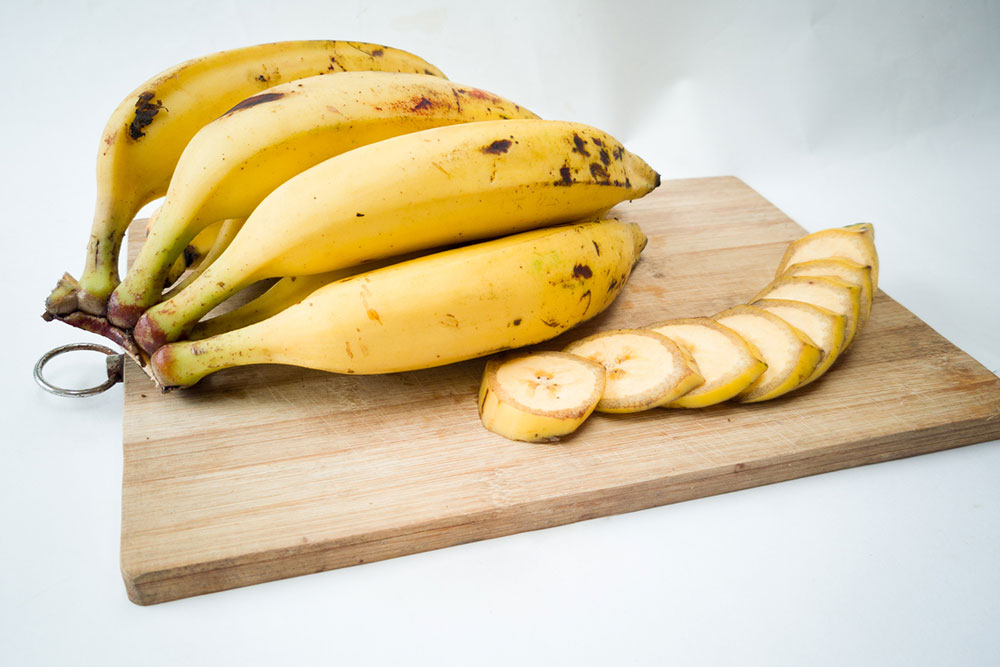
Avoid these 10 foods to reduce the risk of seizures
Anything that interferes with the standard connections between nerve cells in the brain may trigger a seizure and lead to symptoms like abnormalities in muscle tone movements and behaviors. A few risk factors include a high fever, high or low blood sugar levels, or a brain concussion. Experts may recommend various remedies to manage seizures, including following a healthy lifestyle. One such measure is avoiding these ten unhealthy foods that might trigger or worsen seizures.
Bananas
Bananas are rich in several nutrients that are beneficial for the body. However, the fruit contains high amounts of potassium, which could have damaging effects for someone at risk of a seizure. The mineral is utilized by the body to function correctly, including the transmission of electrical signals to and from the brain. However, when an individual has too many bananas, the potassium content in their body might shoot up drastically, which could serve as a trigger for seizures. It’s best to speak to a nutritionist or a healthcare provider about the amount of fruit one can eat in a day.
Coffee
The research on whether coffee is safe or unhealthy for people at risk of seizures is still ongoing. Experts believe the caffeine content could lead to a sudden spike in electrical activity in the brain. Moreover, people usually have coffee to stay awake longer and get a quick boost of energy. And this might affect their ability to sleep properly at night. The lack of proper rest is a common trigger for seizures, which is why someone at risk of complications should cut down on their coffee intake.
Cookies
The level of sugar in the bloodstream is a common trigger factor for seizures in some people. Hypoglycemia (low blood sugar) or hyperglycemia (high blood sugar) can affect the signaling in the brain, leading to seizures. Therefore, experts recommend avoiding sugary foods like cookies, candy, and cakes. Eating these processed foods could lead to a sudden blood sugar spike, which may trigger a seizure episode. One should also avoid drinks with sugars, such as carbonated beverages, as these are equally bad for the body.
Butter
Someone who experiences one or more seizures should avoid saturated and trans fats, such as butter. The fat absorbed from the food is one of the worst properties for people as it may worsen unhealthy cholesterol levels in the body. Excessive amounts of saturated and trans fats could put one at risk of heart disease, such as cardiac arrhythmia. This condition causes the heart to beat fast, slow, or irregularly, which might affect the amount of oxygen sent to the brain. One may consequently suffer from a seizure. Other foods high in trans or saturated fats must be avoided, including margarine, beef fat, coconut, palm, and palm kernel oils. Individuals should reduce the consumption of foods like butter and also consider healthier alternatives that are recommended by a healthcare provider.
Milk
Most people include milk in their daily meal regime, especially for coffee, tea, or cereal preparations. However, the dairy product can have a disastrous effect on people at risk of seizures. While the exact cause of the complication is yet to be determined, experts suggest that those who are intolerant to dairy products might suffer from an inflammation of the central nervous system. As a result, the inflammatory cytokines released during an immune system response might trigger abnormal electrical brain activity, leading to a seizure. Another dairy product one should avoid is high-fat cheese.
Grapefruit
Experts indicate the fruit itself might not be directly responsible for the development of seizures. However, drinking grapefruit juice might trigger complications in people who take prescriptions for seizures. The fruit is rich in a naturally occurring chemical that could interfere with ongoing treatments for the condition and worsen symptoms or make the prescription ineffective. Therefore, one should avoid eating grapefruits if they are at risk of seizures or speak to a healthcare expert about the recommended daily value.
Chocolate
People who are affected by or at risk of seizures should avoid the intake of chocolates. Like coffee, chocolates contain varied amounts of caffeine, which might trigger electrical activity in the brain. Chocolate also contains sugars, another trigger factor for epilepsy. Therefore, one should speak to an expert about the ideal amount they can consume to occasionally enjoy a bar while avoiding any negative impact.
Artificial sweeteners
Artificial sweeteners are added to various foods to enhance their flavor. But the product may have damaging effects on one’s health, including when it comes to those who suffer from seizures. Foods with artificial flavoring that contain properties like aspartame are more likely to suffer from seizures. A few foods that contain artificial sweeteners include canned foods, jellies, jams, candies, and sodas. Besides, one must also steer clear of food colorings if they suffer from seizures. While the research to identify its adverse effects on the body is still under the microscope, some studies show that people who eat meals with added colors are more likely to develop a seizure.
Soy
Soy is a widespread ingredient in several food products across the country. However, adding soy-based foods to meal regimes is potentially a leading cause of mental health complications, including seizures. The complication is more prominent in children. So, when eating foods made with soy or feeding it to infants, one should consult a professional to assess its side effects.
Salt
The ingredient is potentially harmful to those at risk of seizures because of its sodium content. Excessive intake of salt can lead to a sudden drop in blood sugar. As mentioned above, a sudden change in blood sugar levels could trigger unusual activity in the brain. Therefore, one should balance the amount of salt added to foods to reduce the risk of seizures. An expert could help determine the ideal daily value of the property that one ought to add to their meal regime.


